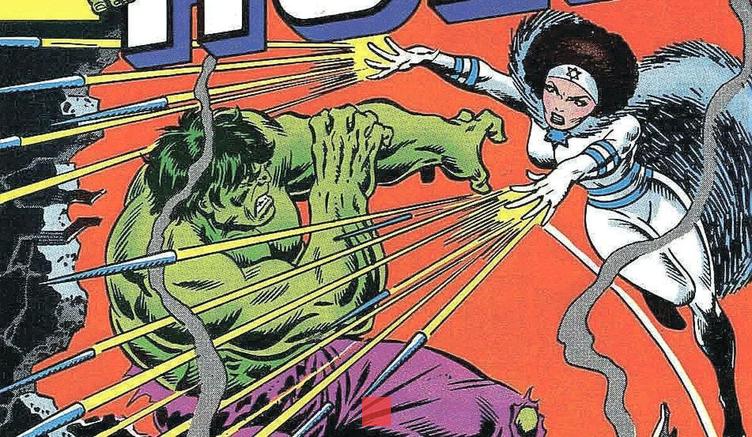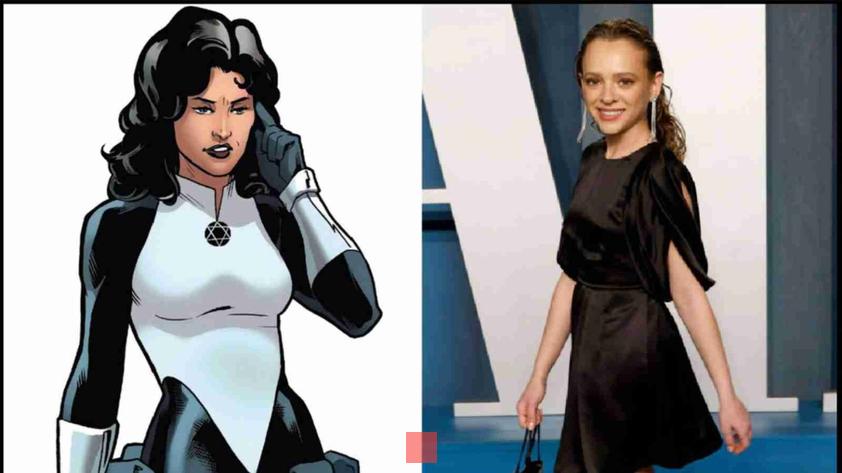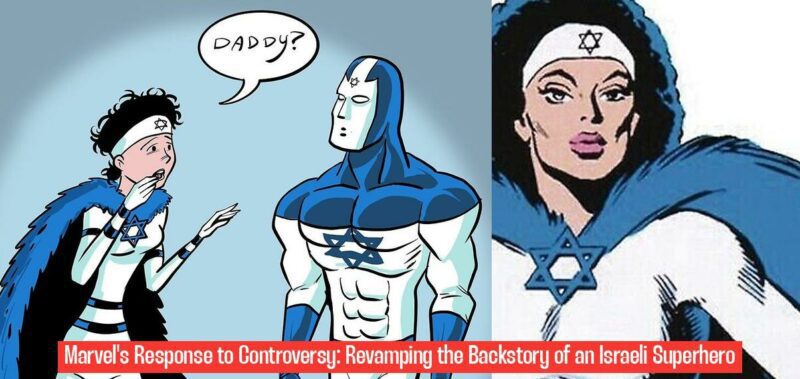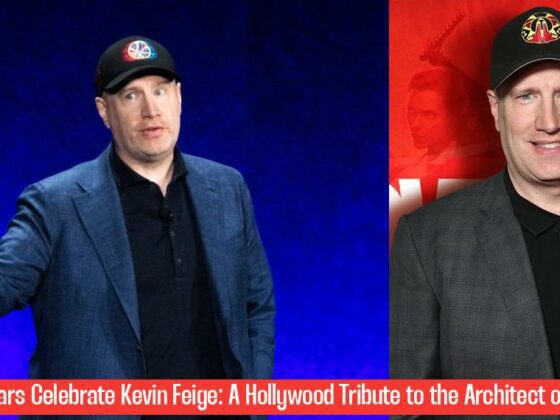After Backlash, Marvel Gives an Israeli Superhero a New Backstory

In the ever-evolving landscape of superhero cinema, Marvel Studios has always been known for its bold storytelling and diverse characters. However, the recent casting of Shira Haas as Sabra, an Israeli superhero, in the upcoming Captain America: New World Order film sparked a wave of controversy, forcing Marvel to make a significant change to the character’s backstory. This alteration, while intended to appease critics, has ignited a debate about representation and the complexities of portraying real-world politics in fictional universes.
Sabra, whose real name is Ruth Bat-Seraph, was first introduced in Marvel comics in 1981 as a mutant with bulletproof skin and the ability to fly. She was portrayed as a Mossad agent, working for Israel’s international intelligence agency, and her character was deeply intertwined with the country’s geopolitical context. This original depiction, however, proved to be problematic for some, leading to accusations of promoting Israeli nationalism and overlooking the complexities of the Israeli-Palestinian conflict.
In response to the backlash, Marvel Studios announced that they would be revising Sabra’s backstory for the Captain America: New World Order film. Instead of portraying her as a Mossad agent, Sabra will now be depicted as a “high-ranking U.S. government official,” stripping her of her original connection to Israeli intelligence. This decision, while seemingly aimed at avoiding further controversy, has been met with mixed reactions. Some argue that it’s a necessary step to distance the character from potentially offensive associations, while others criticize it as a form of erasure, effectively silencing Sabra’s Israeli identity.
More — Benedict Cumberbatch’s Involvement in Avengers 5: What We Know So Far
Read Also : Tina Knowles Proudly Celebrates Granddaughter Blue Ivy’s BET Award Win
The Debate Over Representation and Erasure
The controversy surrounding Sabra’s character highlights the delicate balance between representation and authenticity in fictional storytelling. On one hand, there’s a strong argument for inclusivity and showcasing diverse perspectives in entertainment. The inclusion of an Israeli superhero in the Marvel Cinematic Universe could be seen as a positive step towards greater representation of underrepresented communities. However, the way in which this representation is achieved is crucial.
Critics of Sabra’s original backstory argue that it perpetuates harmful stereotypes and overlooks the complex realities of the Israeli-Palestinian conflict. Portraying a superhero as a Mossad agent, they contend, risks glorifying Israeli intelligence and its actions, potentially alienating audiences who hold opposing views. This criticism stems from the perception that the character’s initial portrayal was too closely tied to Israeli nationalism without acknowledging the historical grievances and complexities of the region.
On the other hand, proponents of Sabra’s initial portrayal argue that it was an attempt to represent Israeli culture and identity on a global stage. They believe that erasing her connection to Mossad diminishes her character and sends a message that Israeli identity is inherently problematic. They argue that Sabra’s backstory, while grounded in real-world politics, was ultimately intended to showcase a strong and capable female superhero, regardless of her nationality.
The Challenges of Portraying Political Conflicts in Superheroes

The case of Sabra highlights the inherent challenges of portraying real-world conflicts and political complexities in superhero stories. Superheroes, by their very nature, are often idealized figures who represent justice, strength, and hope. However, the introduction of real-world politics can complicate this idealized narrative, leading to accusations of bias or promoting specific ideologies.
Marvel Studios, like many other entertainment companies, navigates a delicate balancing act in trying to portray diverse characters and stories while remaining commercially viable. The studio has a history of incorporating global politics into its narratives, such as the exploration of Wakanda’s isolationist policies in Black Panther or the portrayal of the Sokovia Accords in Captain America: Civil War. However, these examples highlight the potential pitfalls of engaging with real-world issues in fictional universes.
The decision to change Sabra’s backstory suggests that Marvel Studios is trying to avoid controversy and maintain a neutral stance on highly sensitive political issues. This approach, while understandable from a commercial perspective, raises questions about the limitations of fictional storytelling in addressing real-world complexities. By choosing to distance Sabra from her Israeli roots, Marvel may be unintentionally contributing to the erasure of Israeli culture and identity, further complicating the debate about representation and inclusivity.
Lessons Learned and Future Implications
The Sabra controversy serves as a reminder of the importance of thoughtful representation and the challenges of navigating real-world politics in fictional stories. It highlights the need for creators to be mindful of the potential impact of their characters and narratives, particularly when dealing with sensitive geopolitical issues.
For Marvel Studios, the Sabra controversy presents a valuable opportunity to learn from its mistakes and develop a more nuanced approach to representing diverse cultures and identities. The studio could benefit from consulting with experts on the Israeli-Palestinian conflict, ensuring that its future portrayals are more sensitive and accurate. This may involve creating characters who are more complex and multi-dimensional, avoiding simplistic portrayals of national identities, and acknowledging the historical and political complexities of the region.
The Sabra controversy is unlikely to be the last time that Marvel Studios, or any other entertainment company, faces backlash for its portrayal of real-world issues. As the world evolves and becomes increasingly interconnected, the challenges of representing diverse perspectives in fictional narratives will only become more pronounced. The entertainment industry has a responsibility to strive for greater inclusivity and sensitivity, ensuring that its stories reflect the complexities and nuances of the real world without perpetuating harmful stereotypes or erasing important cultural identities.
What sparked the backlash against Marvel regarding the Israeli superhero Sabra?
The casting of Shira Haas as Sabra in the upcoming Captain America: New World Order film sparked the backlash due to the character’s original connection to Israeli intelligence as a Mossad agent.
What significant change did Marvel make to Sabra’s backstory in response to the controversy?
Marvel Studios announced that Sabra’s backstory would be revised for the film, portraying her as a “high-ranking U.S. government official” instead of a Mossad agent, to address the criticism.
What are the differing reactions to Marvel’s decision to change Sabra’s backstory?
Some view the change as a necessary step to avoid controversy and offensive associations, while others criticize it as erasure, silencing Sabra’s Israeli identity.
What does the controversy surrounding Sabra’s character in the Marvel Cinematic Universe highlight?
The controversy underscores the delicate balance between representation and authenticity in fictional storytelling, showcasing the complexities of portraying real-world politics and diverse perspectives in entertainment.



